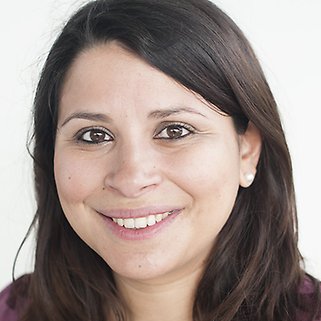
Zoe Nikolaidou
Docent
Ämnessamordnare
Lektor
Jag är språkforskare och jag jobbar med frågor om flerspråkighet, migration och svenska som andraspråk. Min forskning utgår från lingvistisk etnografi och diskursanalys.
Institutionen för kultur och lärande
PB241
I am an associate professor in Swedish at Södertörn University and I have a long-standing research interest in people’s uses of literacy in contexts such as the everyday life, but also in institutional contexts such as the workplace, healthcare and public authorities. In order to examine the social uses of literacy I use methods from the field of linguistic ethnography, including text and discourse analysis, participant observations and interviews. I completed my postgraduate studies in Lancaster University, UK, where I wrote a Ph.D. thesis on the role of literacy within vocational education.
Here you can find information about my current research projects, as well as some information about earlier projects.
Migrants’ narratives in the asylum process
In this research project we examine the role that language and communication play in the Swedish asylum process. More specifically, the study examines how the narrative about the asylum seeker is shaped and reshaped during the asylum process and seeks to answers the following questions:
- How is the narrative about the asylum seeker co-constructed by the asylum seeker, the caseworker, the interpreter and the assigned counsel?
- How does the narrative change when it is converted from an oral into a written version in the Migration Agency’s draft decisions?
- How do the participants experience the interaction that takes place during the asylum interview and how do they make sense of the written documentation?
The project is funded by the Foundation for Baltic and East European Studies and the research team also includes Hanna Sofia Rehnberg (Södertörn University) and Cecilia Wadensjö (Stockholm University). You can read more about the project here: blogg.sh.se/asylberattelser Länk till annan webbplats, öppnas i nytt fönster.
Länk till annan webbplats, öppnas i nytt fönster.
Health literacy and knowledge construction in the information society
This research project was funded by the Swedish Research Council (2015-2017) and carried out at the universities of Uppsala, Södertörn and Stockholm, Sweden. It investigated how pregnant women and their partners, as well as parents to children with congenital heart defects, navigate through the resources offered by care givers, search engines, medical websites, private blogs, online social networks and patient organizations after receiving a pre-natal diagnosis of a congenital heart defect in their fetus. We studied how they experience communication with health care institutions, how they search, value and produce information and how they build knowledge about the heart defect and what it means to them. The research time also included: Anna-Malin Karlsson (Stockholm University) Ulla Melander Marttala (Uppsala Universoty) and Mats Landqvist (Södertörn University).
More information about the project and its outcomes can be found here: www.hälsokommunikation.se Länk till annan webbplats, öppnas i nytt fönster.
Länk till annan webbplats, öppnas i nytt fönster.
Literacy and learning at the workplace: Swedish as a second language in the Swedish work context
In this post-doctoral research project, I examined the literacy practices of factory workers with Swedish as a first and as a second language. The focus lied on the new demands placed upon workers in the "new work order" and the consequent proliferation of texts in the workplace. The project was funded by the Swedish Research Council for Health, Working Life and Welfare (Forte). The publications resulting from this study can be found here:
Language work as care work: Affordances and restrictions with Swedish as a second language in the new work order
In this project we focused on carers and assistant nurses within the elder care sector in Sweden. The aim of the project was to examine the documentation and oral communication practices of care-workers in elder care facilities and the impact these have on their work practices as well as on the construction of their work identities. The research team also included Gunilla Jansson and Anna-Malin Karlsson (Stockholm University). For more information about this project and its outcomes see here:
Forskaren deltar inte i några projekt just nu.

